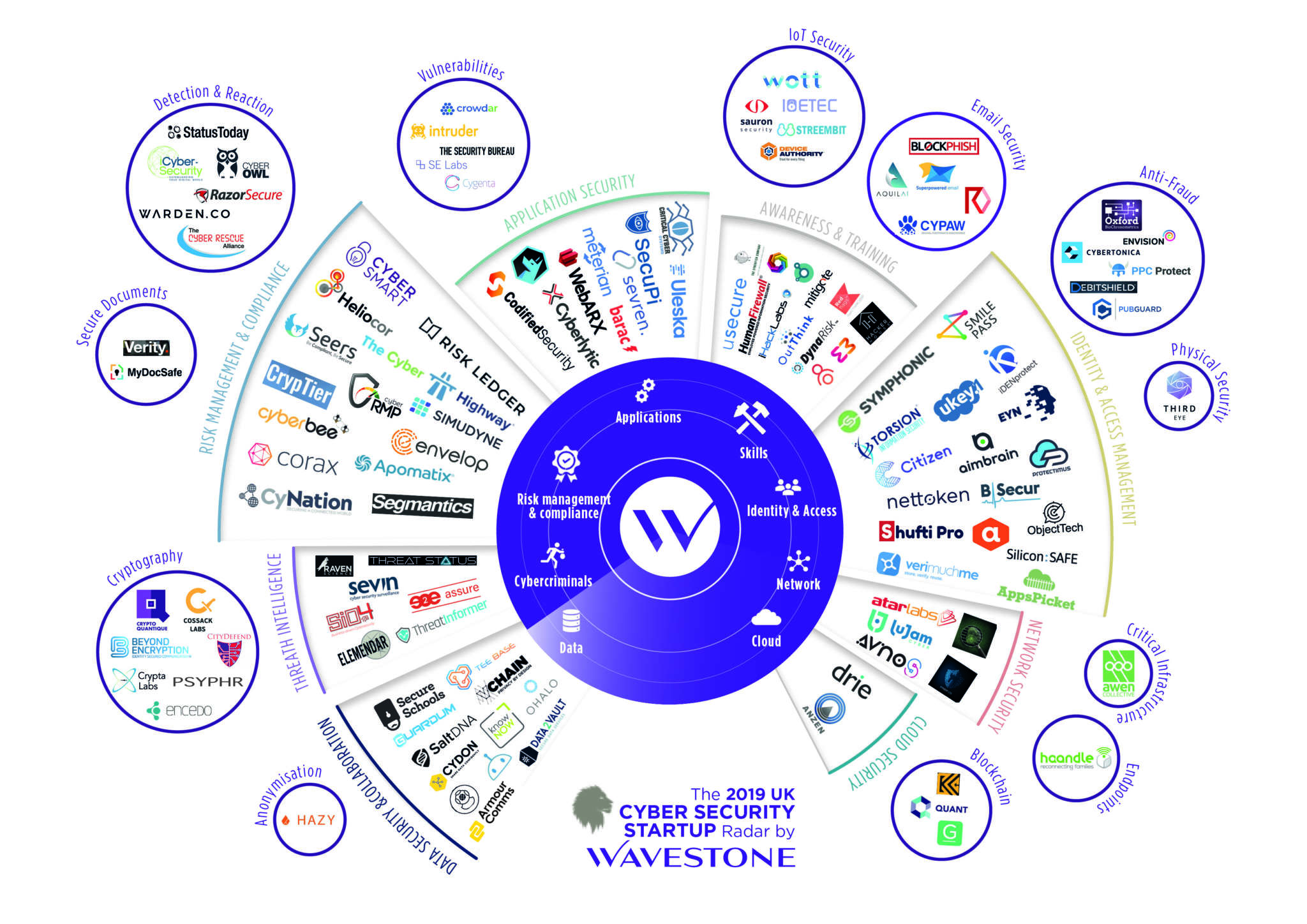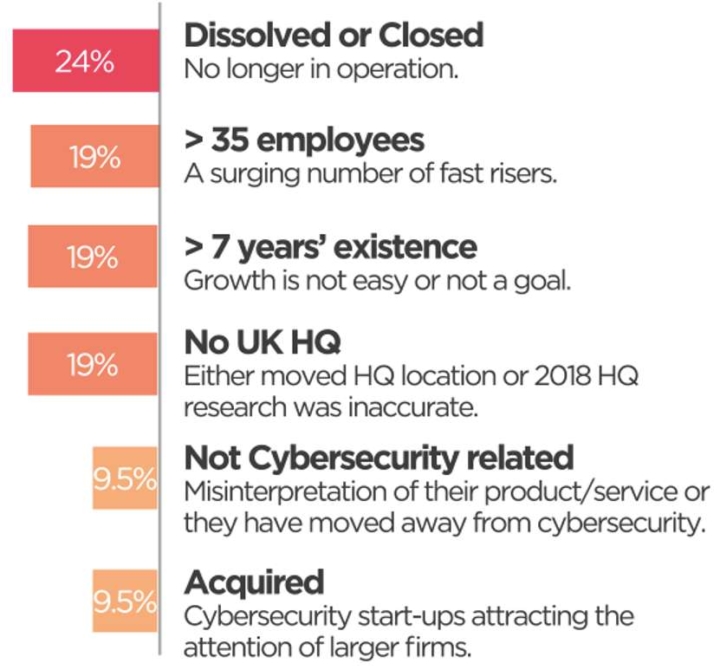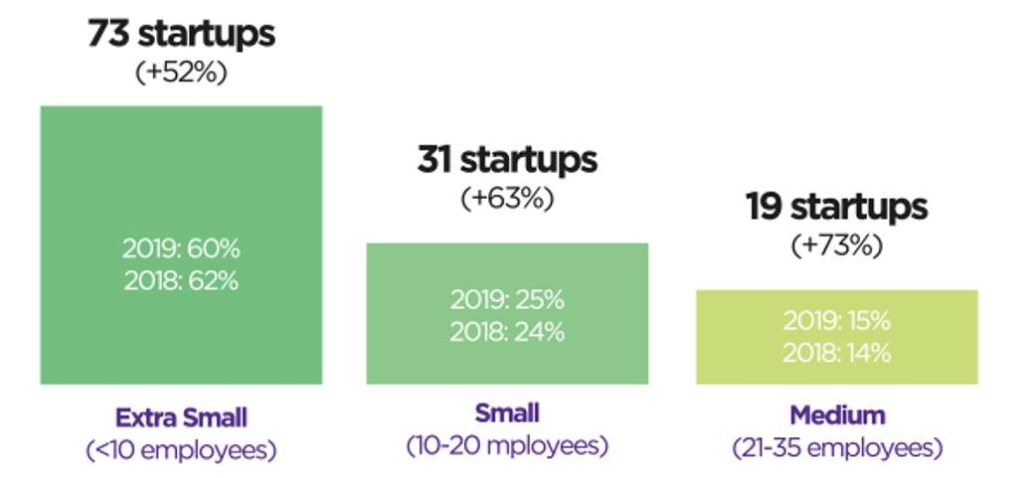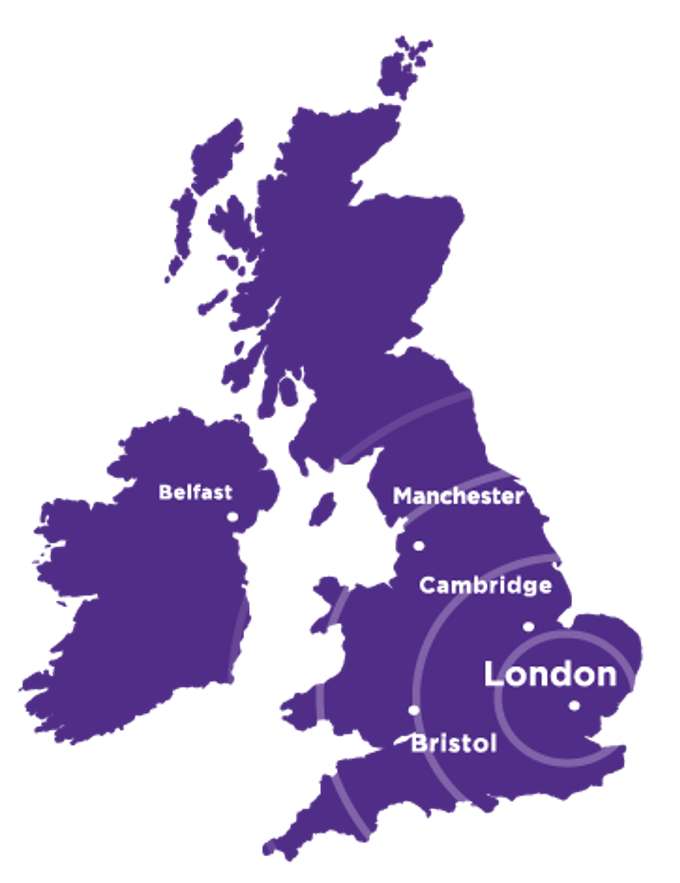The UK cybersecurity start-up market
Cybersecurity remains a fast-evolving ecosystem that presents new threats to enterprises every day with hackers becoming increasingly innovative in their attempts to break into corporate networks and steal valuable data. As such, cybersecurity start-ups are playing an even more critical role in providing disruptive and innovative solutions to novel cybersecurity challenges.
Discover our infographic on the 2019 UK cybersecurity start-up landscape to find out the latest market trends and our key findings in this area.
Methodology & Criteria
Founded in the last 7 years
Headquartered in the UK
Less than or equal to 35 employees
Still a booming start-up environment...
123
UK cybersecurity start-ups in 2019
VS.
78
UK cybersecurity start-ups in 2018
Areas of Specialisation
Start-ups leaving the Radar
21 start-ups have left the radar since 2018 … but why?
More jobs but a similar breakdown in teams
Key: Extra Small team example
- The number of start-ups with extra small teams increased by 52% to 73 start-ups between 2018 and 2019.
- In 2018, 62% of the total 78 startups had extra small teams whereas in 2019, 60% of the 123 start-ups on our radar had extra small teams.
A Concentrated Ecosystem
… of UK cybersecurity start-ups based in London.
4 Key Tips to Engage with Cybersecurity Start-Ups
Cybersecurity start-ups can help address new challenges through their specialised or advanced technologies.
Understand your weaknesses and requirements to help build the right use cases and choose the best startup solutions.
Carry out a Proof of Concept (PoC) to validate strong functional and technological coverage of the solution.
Prepare for implementation (consider integration of architecture, data and process flows).
Ensure your teams are fully on-board with the project and work actively with the start-up to embed the solution and sync ways of working.










